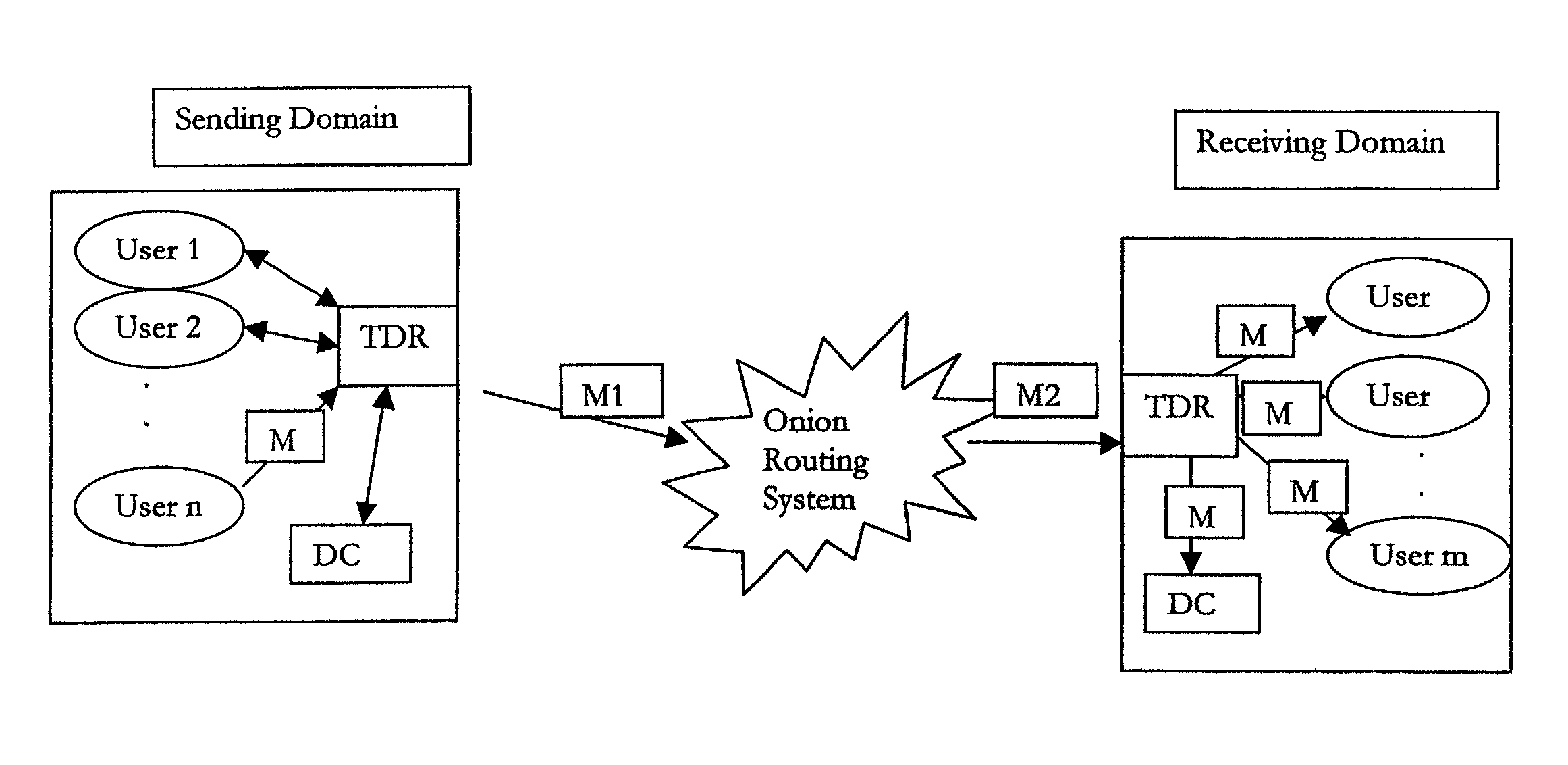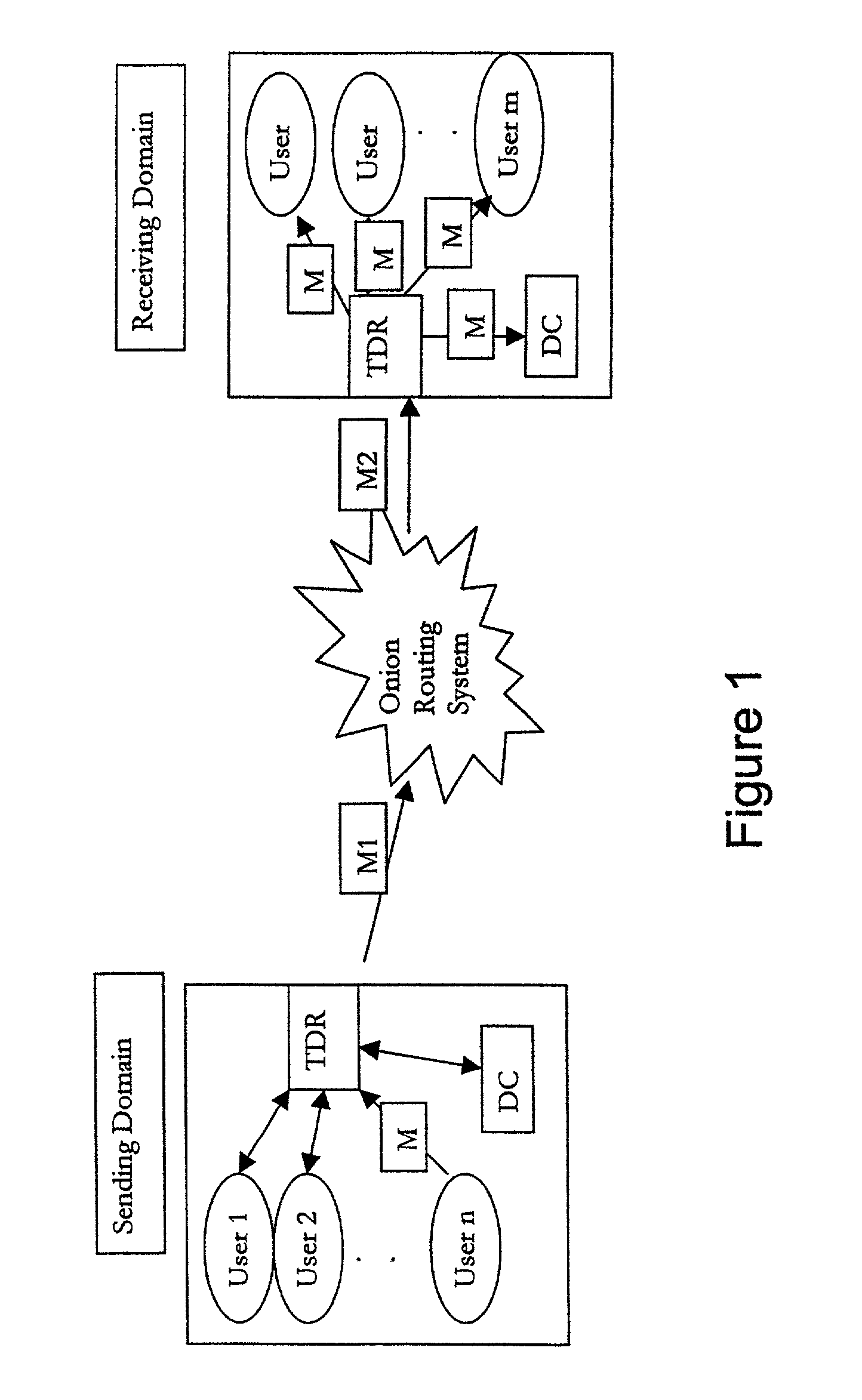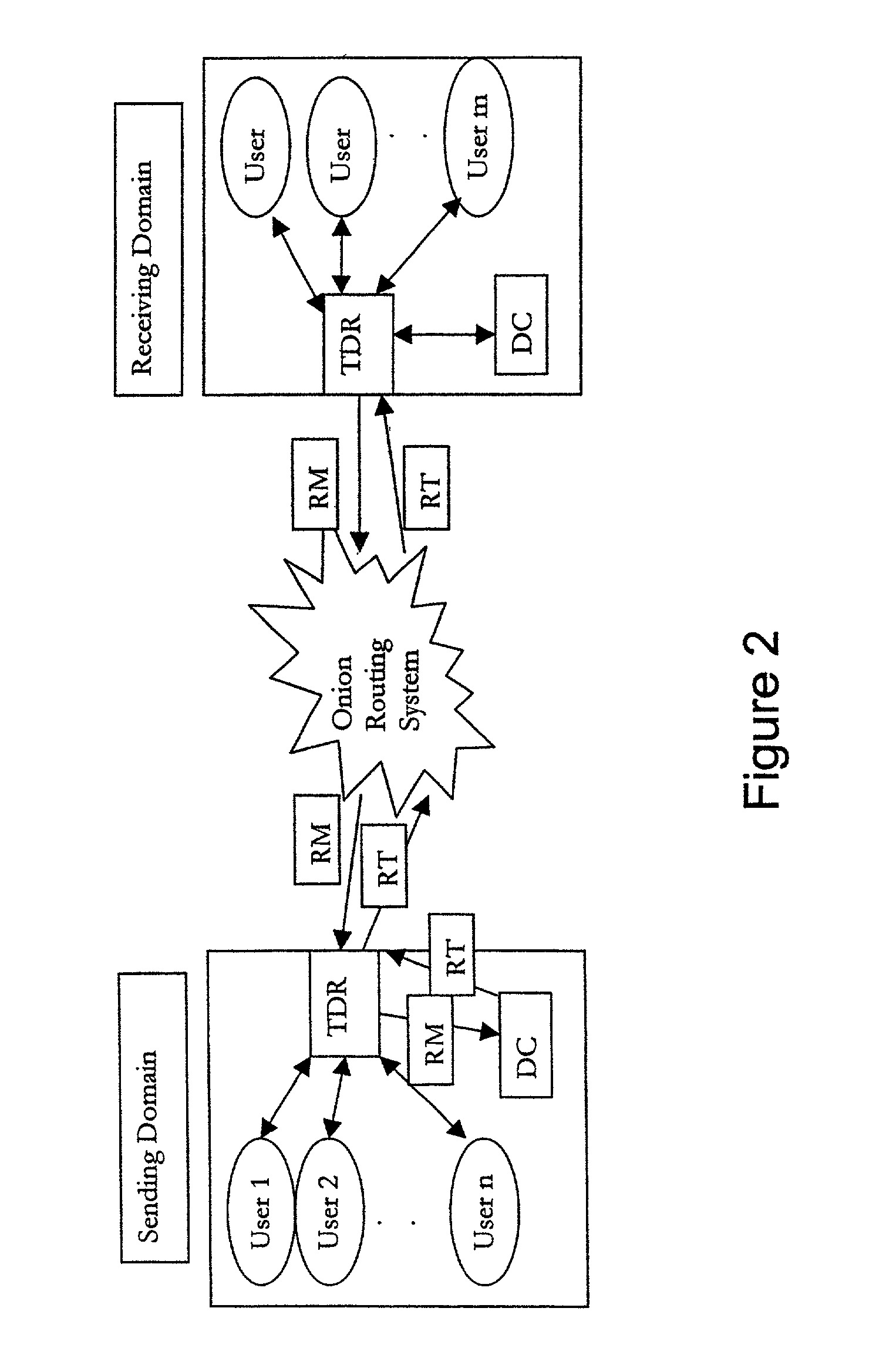Anonymous authenticated communications
an authenticated communication and anonymous technology, applied in the field of electronic communications, can solve problems such as inability to decrypt properly, complicated schemes, and serious problems in key distribution and upda
- Summary
- Abstract
- Description
- Claims
- Application Information
AI Technical Summary
Benefits of technology
Problems solved by technology
Method used
Image
Examples
example 1
[0144]One application of the invention is in support of Information Sharing and Analysis Center (ISAC) activities detailed in President Clinton's Presidential Decision Directive 63 (PDD63) and which have been included as part of President Bush's Executive Order “Critical Infrastructure Protection in the Information Age.” They refer to the creation of ISACs developed and supported by industry infrastructure specific individual industry owners. The industry owners may communicate infrastructure and cyber problems or issues to their ISAC. This ISAC may then send this information on to a central government agency (e.g., the National Infrastructure Protection Center (NIPC)) where this data will be evaluated with data from other sources to see if there is a larger problem or threat. In such a model the individual industry users may be members of an Electric Power Owner or Water Company, etc. The ISAC members may be representatives from a particular set of industry providers (e.g., Electri...
PUM
 Login to View More
Login to View More Abstract
Description
Claims
Application Information
 Login to View More
Login to View More - R&D
- Intellectual Property
- Life Sciences
- Materials
- Tech Scout
- Unparalleled Data Quality
- Higher Quality Content
- 60% Fewer Hallucinations
Browse by: Latest US Patents, China's latest patents, Technical Efficacy Thesaurus, Application Domain, Technology Topic, Popular Technical Reports.
© 2025 PatSnap. All rights reserved.Legal|Privacy policy|Modern Slavery Act Transparency Statement|Sitemap|About US| Contact US: help@patsnap.com



